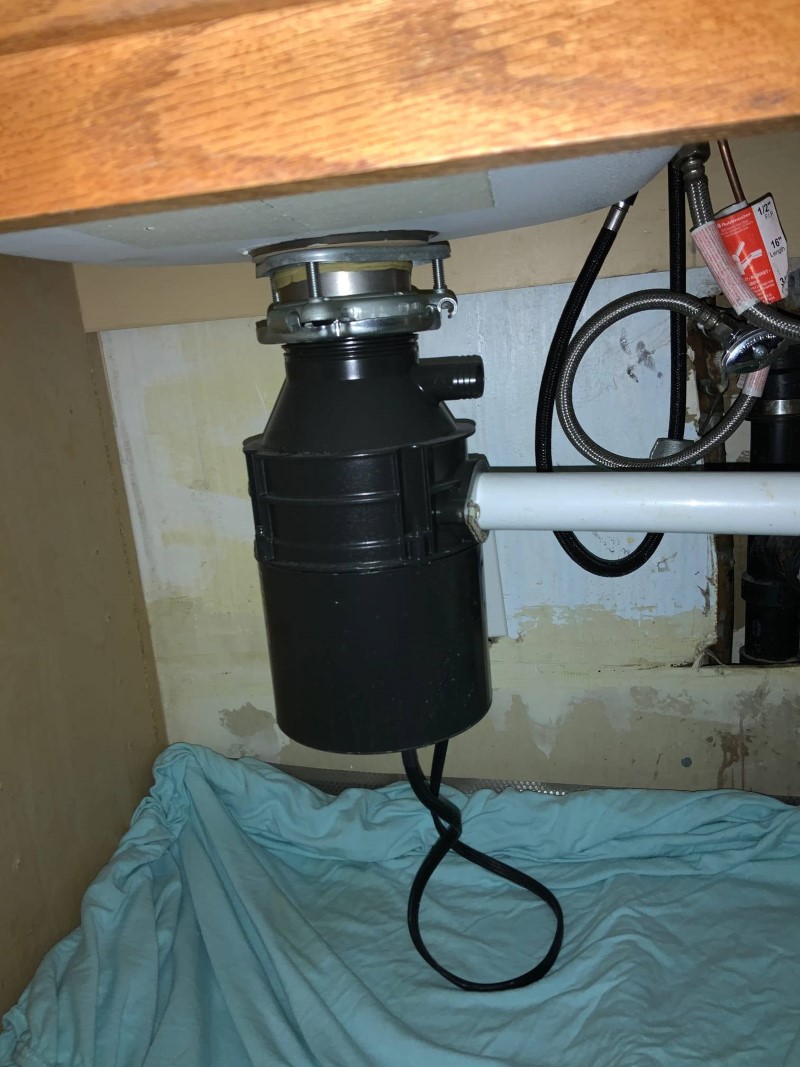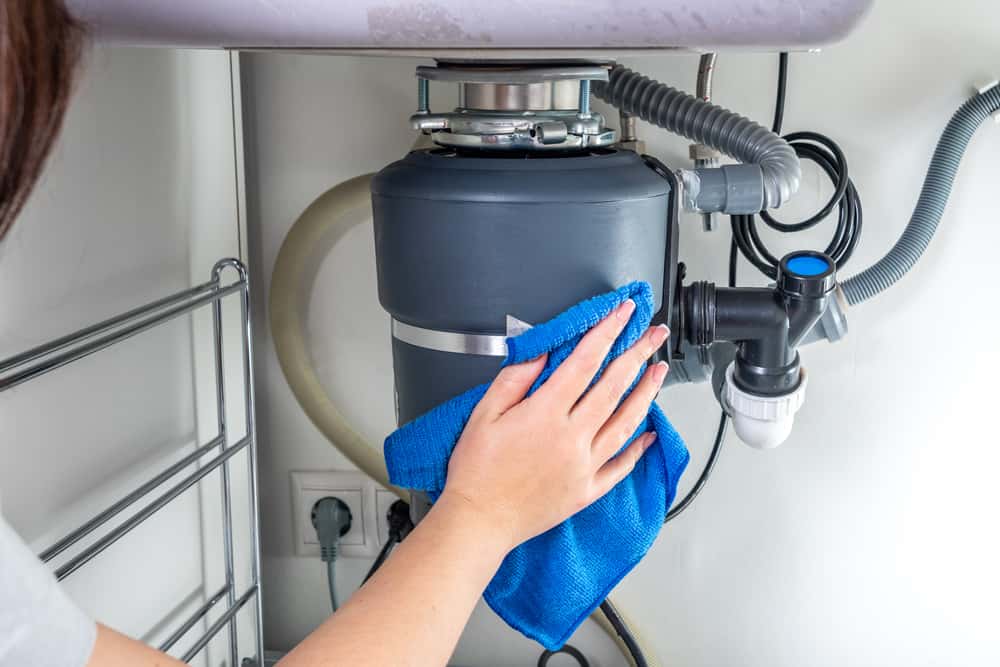Fast Fixes for a Dripping Garbage Disposal
Fast Fixes for a Dripping Garbage Disposal
Blog Article
Just about every person will have their own unique idea on the subject of Why Is .

Waste disposal unit are vital cooking area devices that aid in taking care of food waste successfully. Nonetheless, a dripping garbage disposal can be an aggravating and messy problem to deal with. Fortunately, many leaks can be taken care of quickly with a couple of basic actions. In this write-up, we will certainly discuss how to fix a dripping waste disposal unit properly.
Intro
Waste disposal unit are set up under kitchen area sinks and are developed to shred food waste right into smaller sized items, enabling it to go through the pipes system quickly. While these devices are generally dependable, leakages can happen with time because of damage, loose connections, or damages to the unit.
Usual Reasons For Leakages in Trash Disposals
Worn Seals and Gaskets
Seals and gaskets play a crucial function in stopping water from leaking out of the waste disposal unit. Over time, these components can degrade, causing leakages around the disposal device.
Loose Links
The connections between the garbage disposal and the plumbing system can end up being loose over time, causing water to leak out during operation.
Fractures or Holes in the Disposal Unit
Physical damages to the garbage disposal, such as cracks or holes in the housing, can also lead to leakages.
Identifying the Source of the Leakage
Before attempting to deal with a leaking garbage disposal, it is essential to recognize the source of the leakage. This can usually be done with aesthetic inspection or by performing straightforward tests.
Visual Inspection
Check the garbage disposal unit carefully for any kind of indications of water leak. Pay close attention to areas around seals, gaskets, and link points.
Examining for Leakages
One method to test for leaks is by running water through the disposal unit and checking for any kind of noticeable indications of leakage.
Tools and Materials Needed for Dealing With a Leaking Garbage Disposal
Prior to beginning the repair service process, gather the needed devices and products, including a screwdriver, adjustable wrench, plumber's putty, replacement seals or gaskets, and epoxy or patching material for fixing splits or openings.
Step-by-Step Overview to Dealing With a Dripping Waste Disposal Unit
Switch off the Power
Prior to trying any type of repair services, make sure that the power to the garbage disposal unit is turned off to prevent the threat of electrical shock.
Find the Leak
Identify the exact area of the leak and identify the cause.
Tighten up Connections
Make use of a wrench to tighten any kind of loose links between the disposal device and the plumbing system.
Change Seals or Gaskets
If the leakage is because of used seals or gaskets, remove the old parts and replace them with brand-new ones.
Patching Splits or Openings
For fractures or holes in the disposal system, usage epoxy or a suitable patching material to seal the broken location.
Checking the Waste Disposal Unit After Repair Service
Once the repair is full, examine the waste disposal unit by running water with it to make certain that the leak has actually been settled.
Preventive Upkeep Tips to Prevent Future Leaks
To avoid future leakages, it is essential to perform regular maintenance on your garbage disposal. This consists of maintaining it clean, preventing placing non-food products or difficult things down the disposal, and periodically looking for leakages or various other issues.
Verdict
In conclusion, taking care of a leaking garbage disposal is a fairly straightforward procedure that can be finished with standard tools and products. By complying with the steps described in this short article and exercising preventive upkeep, you can keep your garbage disposal in good working condition and stay clear of costly repair services in the future.
HERE’S HOW TO FIX YOUR GARBAGE DISPOSAL
WHAT TO DO IF SOMETHING IS STUCK IN YOUR GARBAGE DISPOSAL
If the impeller won’t turn, there’s probably something stuck in the disposal. It could be a steak bone or peach pit, although plumbers report pulling all sorts of inappropriate objects out of disposals, such as bottle caps or aluminum foil. Make sure power to the disposal is off, and look inside to see if you can see the source of the jam.
Never stick your fingers in a disposal. Pull out anything you see with tongs or pliers.
If the disposal still won’t work, it may be time to call a plumber or consider buying a new disposal. GEM Plumbing & Heating is here for all of your garbage disposal needs.
WHAT TO DO IF YOUR GARBAGE DISPOSAL DRAIN IS CLOGGED
Take everything out from underneath your sink and put a bucket or other container under your disposal to catch any water that drains out. Disconnect your disposal from the power supply. If it’s plugged into a wall outlet, unplug it. If it’s hardwired into an electrical box, go to the electrical panel and turn off the breaker for the disposal. Pour ¼ cup of baking soda into the drain, followed by ½ cup of white vinegar. Give the solution a few minutes to fizz and do its work. Look into the disposal with a flashlight to see if you can see an object that might be causing the clog. If you see it, remove it using tongs or pliers. MORE TIPS ON DEALING WITH A CLOGGED GARBAGE DISPOSAL
Never use drain cleaner in a garbage disposal. It can damage the plastic parts inside the disposal. You can also be splashed with the caustic liquid while working to clear the clog. Beware! Never stick your fingers into a garbage disposal. Trust us — not a good idea. In many instances, your dishwasher drains through your garbage disposal. This allows the disposal to grind any large food particles that may be drained out of your dishwasher. There are some jurisdictions, however, where the plumbing code prohibits such a connection. WHAT TO DO WHEN YOUR DISHWASHER DRAINS THROUGH THE DISPOSAL
Run some water in the sink so your plunger has at least a ½-inch of water to create a seal and plunge vigorously up and down several times. You may need to repeat this several times. Run hot water down the drain to clear any residue that remains.

I am very inquisitive about Why Is and I really hope you enjoyed our piece. Appreciated our blog posting? Please share it. Help another person find it. Thank you for your time invested reading it.
Rates Report this page